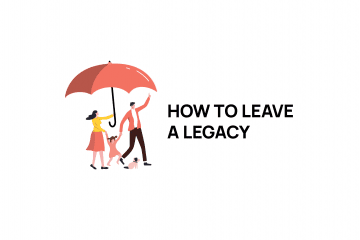For those getting divorced and completing a divorce settlement, life insurance often enters into the agreement as part of the finances. There’s a few things you should consider at this time, including how much life insurance, the type, and who will pay the premiums.
How much life insurance?
The amount of coverage will need to be negotiated, but at it’s simplest you’re trying to cover the loss of any ongoing payments you’ll receive as part of the divorce. Basically if your spouse should die tomorrow, you’ll want an amount of coverage equal to the total future payments that were just lost. If your former spouse is paying $15,000 per year in child support payments for about 15 years, then a beginning point would be $15,000 X 15 years = $225,000 of coverage.
What type of life insurance?
Because your former spouse’s obligations are likely to end in the future (i.e. once the kids are through school) then typically the requirement for life insurance would end at that time as well. How long they need to keep the life insurance will dictate what type of term life insurance they should purchase. You may consider 10 year term (10 years), 15 year term, or 20 year term. In all cases you should try and match the term with how long the financial obligation are, and assume that at the end of the term there is no further life insurance coverage.

Other considerations
There are three other things to consider about these policies; who will be the owner, who will be the beneficiary, and whether the beneficiary is revocable or irrevocable.
The owner of the policy is the person who both controls the policy and the person who pays for it. Note that the owner of the policy does not have to be the person who is actually insured. Typically the person who is responsible for support payments ends up being the owner. They purchase the policy and pay for it. Be warned though, there is potential for abuse if the ownership of the policy is left with the insured. They can cancel the policy at any point in the future without notification or consideration. As a result if you are receiving payments, you may consider becoming the owner of the policy and paying the premiums to ensure that you have full control of the policy.
The beneficiary in this case should be the recipient of the payments and not the children. Payments as the result of a divorce are normally paid to the former spouse and not the children, so it’s the former spouse that is suffering the financial loss upon death, not the children directly. Your former spouse may opt to increase their coverage to provide additional death benefits to any children, but this would be a seperate consideration.
And lastly, life insurance policies have the ability to make a beneficiary ‘revocable’ or ‘irrevocable’. Revocable means the owner of the policy can change the beneficiary without consulting the beneficiary. Irrevocable means the owner cannot change the beneficiary without notifying the current beneficiary. Most policies by default are revocable. If your former spouse is the owner of the policy and the beneficiary (you) is set to revocable, then your former spouse can change the beneficiary to someone else without notifying you. Consider making the beneficiary irrevocable, ensuring that your signature is required before any insurance beneficiary change is made.
Existing life insurance policies
Existing life insurance policies could be considered an asset, both any existing cash or investment values, as well as any future death benefits. If your former spouse has a life insurance policy with $10,000 of investments, then this is something that should be discussed with the lawyer handling your settlement.
In addition, if they have permanent life insurance (insurance they purchased in the past and is intended to be kept for life, such as whole life or universal life) you may consider including some or all of that future death benefit in your settlement agreement. This would entitle you to some part of the death benefit when your former spouse passes even in the distant future. This entitlement may exist because the policy was acquired and paid for during your relationship. If this is the case, again you may consider requiring that they change the beneficiary to ‘irrevocable’ so that it can’t be changed by them in the future.
Another outstanding reference on divorce, including information on life insurance is available here: www.canadiandivorcelaws.com.
If you would like more information on life insurance and divorce you can reach out to us at any time.




